|
Despite the abundance of dating opportunities, finding love has never been more challenging. We’ve come so far with technology and cultural progress, yet we still struggle with dating burnout. Finding love should be simple now, but it’s become a complex and emotionally draining journey. We strive for security, independence, and growth in our relationships, yet the search for love seems to bring on feelings of anxiety, insecurity, and heartache. We want to protect ourselves, but it’s becoming harder. Dating World ChangeD But Our Humanity Remains the SameThe feelings of unworthiness and shame individuals with mental health challenges experience when dating are often overlooked. Asking for an emotional connection right away can feel like an imposition, and waiting too long can leave us with doubts. Despite the turmoil, we still have to play the game and losing sucks. We hide our feelings, put on a facade, and are afraid to show our vulnerabilities. We seek validation and send panicked screenshots to our friends for the next best reply. We’re constantly second-guessing and navigating with care, yet we dare. But sometimes, in the quest for love, we shove our emotions to the back of our minds, choosing solitude over relationships and self-discovery over love, believing that we must love ourselves before we can love others. Navigating My Highs and Lows In Pursuit of LoveI have struggled with my moods for a long time, especially in what some would say are my “hot years.” I’ve woken up on many days with the vow of not pursuing relationships altogether, feeling unworthy and overwhelmed. On other days, I would feel ambivalent, deleting dating apps and re-downloading them frequently, exhausting my very little energy. I would be hot and cold, asking for space one moment and as little space as possible the next. If I really liked someone, I’d freak out. What if they could see through me? Sometimes, I would reveal too much too soon, and I always wondered, why was that a problem? I have searched for stories like mine in books, TV shows, movies, and other people, hoping to find a way to make it to the other side. But to avoid heartache, save energy, and keep other aspects of my life stable, I have denied myself the opportunity to date on several occasions. I’ve also been in failing relationships where the guys would gaslight me, twisting my words and actions to make me question my own reality. And when I dared to speak up, they would blame it on my bipolar disorder, making me feel like the villain. They would use my mental health as a tool to manipulate and control me, making me doubt myself and my own experiences. It was a constant battle, trying to navigate the confusion and uncertainty they created. I felt like I couldn’t trust my own mind and that I was constantly walking on eggshells, trying to avoid their wrath. My condition felt like a burden, and I thought I must be wrong after all. It was cruel and left me feeling isolated and alone. “Take Me As I Am, Whoever I Am”I had to learn that my bipolar disorder is not something to be exploited or used against me and to trust my own mind. I had to learn to dig deeper into my intuition and virtues, always align my actions to my moral compass and walk away when needed. This guided me in all types of connections I made over these years. I have slowly started speaking up about my mental health. Among friends, coworkers, and at open mics because pretending that I was not crumbling on the inside was getting exhausting. A friend once suggested the third episode of the show “Modern Love,” in which Anne Hathaway plays a character who navigates the dating world while struggling with bipolar disorder and balancing her professional life. That hit me hard. I must have cried throughout the episode. The title “Take Me As I Am, Whoever I Am” is not just for the world but also something I have had to ask myself to do. I feel my feelings very deeply. Lately I’ve had to dig a lot deeper to uncover what I am running away from, discover what keeps me from moving forward, and how I can avoid this back-and-forth in my decisions and actions. These promises of self-protection would keep me isolated and spare others from hurt, but they also burnt bridges and left some perplexed. What followed eventually was regret. With goals achieved, self-care maxed out, and passions no longer filling the void, this dust would settle, leaving me alone with my desperation staring back at me. But I do often catch a break which gives me a chance to breathe as a human — a messy, vulnerable, magnificent human who is very well capable of love. LET LOVE FLOW BY EMBRACING YOUR VULNERABILITIES AND INSECURITIES AND PASS YOUR LOVE ON TO OUR CHILDRENThis is not just a story about seeking love in romantic relationships but about preserving the very essence of it. A story about love that:
As I delved deeper into my emotions, I discovered a hidden treasure — a superpower I never knew existed. Embracing the ebbs and flows of my moods made me incredibly attuned to the feelings of others, and empathy began to flow naturally from me. I recall a moment when I was feeling particularly low and witnessed a woman crying on the subway, ignored by all around her. Without a second thought, I followed her off the train and gave her a comforting long hug until she said she felt better, and was ready to go on with her day. It was then that I realized the true power of empathy and how it can transform the lives of those around us as well as ourselves. It makes us brave to show up. It’s also about learning to receive empathy as well. My friends who understand my condition show me endless grace and compassion when I feel unworthy and when my thoughts become stuck in a cycle. Let’s pass this love on and assure children who’ve endured the bitter pain of growing up in an emotionally abusive environment, where love was a distant dream, that it was never their fault. They have every right to feel the hurt and the pain. Indeed, allowing themselves to do so is the truest form of love. There are those among us – coworkers, friends, and even strangers – who will listen without judgment and hold you tight as you cry. That is love. And, when your friends are too burdened to reach out, you must reach out to them with tenacity and openness and, when they finally open up, that is love. We all seek love in our romantic relationships, but we can’t limit it to that. It flows freely. Love is everywhere, in every person we come across, and in every moment. We have all felt denied of the love we so deeply crave, but let that be the driving force to create more of it. We are love; we are it. Do not take my word for it. Go out into nature, sit in a garden and truly relax. Take in every detail around you, and you will see it. You will feel it. DO NOT LET YOUR MENTAL HEALTH LIMIT YOUR ABILITY TO LOVETo those battling their mental health, please hear this: your capacity for love is not limited by your struggles. It is often through the darkest of days that we learn to love with the deepest of sincerity. You have felt the pain of life’s harsh realities, and in that pain, you have found the strength to love with a ferocity that others can only dream of. You understand the importance of compassion and empathy: of truly seeing and understanding another person. You have been to the depths of despair and have emerged with a heart full of love and the courage to give it to the world. You are capable of loving in ways that others can not imagine; your love is pure. It is real and it is what the world needs. You are the light in the darkness, the hope in the despair, and the love in pain. Believe in yourself, in your capacity to love, and let that love be the beacon that guides you through life’s journey.
1 Comment
I always knew I was different. A little too sensitive, a little too anxious, a little too much. As a child, I struggled with social anxiety and an obsessive need to please others. And, although I appeared to be a very happy child, something was starting to change in me. As a teenager I began to struggle with suicidal thoughts but was too afraid to tell anyone. I had been placed in therapy, but I was too scared to tell my therapist just how sad I was for fear of what would happen to me. my facade crumbles and my mental health along with itI once heard Jim Carey say that “depression” means “deep rest” and that a depressed mind is your body’s way of saying, “I need a break, I don’t want to play this character anymore.” That is exactly how I felt. I was physically and emotionally exhausted from trying to be happy all the time, trying to please others, and wearing a mask so that no one could see the real me and how much I was hurting. By the time I reached college, the façade that I had been holding up for so long came crumbling down and I had a full mental breakdown. I was forced to drop out of school and was eventually placed into McLean hospital as my behaviors became increasingly dangerous. I felt like I had failed everyone in my life and had failed myself. I no longer saw a bright future. I didn’t care anymore about anything, especially myself. Borderline personality disorder, anxiety, and depression diagnoses help me make sense of myself and my lifeI was hospitalized at 19 years of age and diagnosed with borderline personality disorder, anxiety and depression. Once I came to understand my diagnoses, the distorted way that I thought started to all make sense. I finally understood why I was such a people pleaser, why I was so terrified of being abandoned by my loved ones, why I was so afraid of anger, and why I had reached my breaking point. I started to realize that these illnesses had dictated so much of my thought processes that I didn’t even really know who I was. I lived in such paralyzing fear for most of my life, afraid to upset people and afraid to fail. I was exhausted. BEGINNING REAL WORK OF UNDERSTANDING WHERE MY ILLNESSES END AND I BEGinBut now the real work has begun: learning to understand where the illnesses end and where Dina begins. After spending ten years in and out of hospitals and rehab facilities, I was able to slowly reintegrate into mainstream society. I was able to go back to community college and then finish my Bachelor’s degree at Boston College while I worked a full-time job. The more I learned about myself, the more I began to realize just how smart I was, how kind I was, and what a great laugh I had. FULLY EMBRACING MY LIFE’S DREAMS, I Go for itWith a lot of grit and hard work, I was able to finally pursue the career path that I always envisioned for myself, landing internships and eventually a full time position working in television. I have achieved things that many thought were not possible for me and, even now, I need to constantly remind myself to be grateful for that. However, as we age and mature sometimes our dreams change and now, I am beginning to envision a whole new career path as a mental health empowerment keynote speaker. And once again, I plan to achieve that because I know that I can. my journey to recovery is a medal of honorI used to want to sweep the fact that I had endured a life-altering mental illness under the rug and just move on. I was ashamed and embarrassed of my past but now, I realize that I should NOT be ashamed of this. Rather, I should wear my journey to recovery like a medal of honor. I should be proud, and I should remind myself of that every day. A mental illness that alters your life never truly goes away but rather it lies dormant and reappears when life gets tough. I often try to control all aspects of my life because I have somehow convinced myself that if I can control life then it can’t throw me off the tracks. It can’t derail me and make me sick again. But that is not how life works. my light is A Beacon Reminding me We ARE All Perfectly ImperfectI am still learning to let go of the reins every once in a while, embracing the knowledge that even if life breaks me, I won’t stay broken forever. I am still actively in therapy and on a daily medication regimen. I fully support this because it allows me to lead a “normal” life. I still have issues that I struggle with daily, and I continue to work on myself every single day. Do I wish I was not an anxious person? Yes, of course! Do I wish I had not lost ten years of my life? Absolutely! But am I proud of the person I became? Undoubtedly! please heed my advice to youI once heard a quote, “when you go into the storm, you don’t come out the same person … you aren’t supposed to.” Mental illness is a storm but, like the quote says, you can come out of a storm, you just aren’t the same person who went into it. You are stronger and more resilient. My advice to you is this: don’t allow your mental illness to dictate what you are capable of. Only you can determine that. And remember, you are not flawed. You are not unlovable. You are not unworthy. You are perfectly imperfect. Go chase your dreams. You got this!
2/7/2022 A Personal Message to All Struggling, Especially teens and Young Adults: I See You, I Hear You, AND If My Words Could Make a Difference, This is What I Would Say to YouRead NowIf you were having symptoms of a heart attack would you call yourself “crazy” or would you call 911 and get help? Here’s what I would do. I would definitely not be calling myself “crazy.” I would be calling 911, telling them it was an emergency, that my life was in danger, and I need an ambulance and paramedics sent as soon as possible to get me to the hospital. If I could not call, my loved ones or friends would call. Even a stranger would call if they saw me collapse. If I saw someone in such a crisis, I would make the call to 911 myself. And what if medicine or life enhancing therapies such as nutrition, exercise, sleep, and stress reduction could help save my life? I would ask my doctor to educate me on the best “heart health” practices. I’d ask for prescriptions and referrals because I want to stay alive, be healthy, and I don’t want to die. So why do we insist on thinking our brain is not part of our body and act so differently when our brain health is at risk? Why do we dismiss or hate ourselves and/or think others will ridicule and/or shame us if we have a “mental” illness? Maybe in part it’s the stigma we feel and fear we’ll feel that’s so associated with the words “mental” illness. I don’t like how that word has been used. It’s said in disparaging ways, in unkind, and untrue ways - as in - she’s “mental” and he’s “mental.” “Mental” meaning “crazy” - less than human - an aberration. Being “other” than everyone else. “Just pull yourself together. Snap out of it! Stop wallowing. I’ll give you something to really cry about.” That’s some of the unhelpful comments we hear. And how about, “It’s all in your head?” Meant as a put down, but in reality, yes, that’s true. Inside our head is our brain and it needs help not sarcastic, shaming, or demeaning remarks and criticisms. Do I call my lungs “crazy” when I’m having an asthma attack? Definitely not. My lungs are not well, yes. But crazy? No. And what do I do to help myself? I’ll use my inhaler. If I’m still in an acute crisis - as in - I’m wheezing so much that I'm having real trouble breathing, I’ll get myself to an emergency room. Will I be ashamed of being asthmatic? No way. I will tell the nurses and doctors I have asthma and ask for medical help. How different, though, it can be for psychiatric illness that strikes at the brain. It’s essential to remember that the brain is part of the body. “Mental” illnesses are in reality physical illnesses. Our brain and our mind may suffer, but that does not mean we are “looney tunes, crazy, or nuts.” After all, the brain impacts our whole being - how we think, feel, act, speak, eat, sleep, and more. Think of it this way. When our brain is attacked from inside itself, we might experience a depression attack, manic attack, anxiety attack, panic attack, suicidal attack, self-hatred attack, what’s the point of living attack, an urge to self-harm attack, body image distortion attack, and other such “attacks” whose source is invisible from the outside while all too painful and real from the inside. Our brains are not “crazy.” These types of attacks are just as real, just as important, and are just as in need of help as when we have a heart attack. A heart attack can be life threatening. A brain attack can also be life threatening in terms of life and death, as well as the on-going quality of how we are able to live our lives. Let me ask you this. Do you know that suicide is the 10th leading cause of death in the United States? Here in Oregon where I live, the number one cause of death for ages 10 to 24 years old is suicide. These deaths did not have to be. The flesh and blood lives that could have still been lived now forever lost into the abyss of suicide. We must be vigilant and aware of “psychiatric brain attack” warning signs such as change in mood, suicidal thoughts and actions, self-harming, change in sleep and eating, alcohol and drug use, anxiety, panic, and despair. Our brain deserves respect, and it deserves help. We deserve our and others’ understanding and compassion, and not the cruelty of being shamed. Silence, shame, and stigma need to be banished. That will happen when the truth about psychiatric illness is known and we bravely share our mental health stories. Let’s make everyone aware that illness attacks on brain health are real. They can be life threatening and should be approached just as one would any other health crisis. Now that you know the truth and that medication and/or therapy help is available, please don’t become a statistic. Save your life. That’s what your brain and your heart want you to do. Have my words made a difference? I pray that they do. Your voice has power in The “If My Words Could Make A Difference” Youth Mental Health Campaign.
Teens and young adults can share their own creative pieces of work or view those submitted by others on ASHA International's website. They can not only be part of the conversation but help lift their peers up as well. Our youth are in a crisis, with a national emergency declared. please share OUR message and THIS campaign.Please share our message as well as this youth campaign with those who may benefit from hearing it or taking part in the conversation, and sharing their story. Let's all be there during this National Emergency for Youth Mental Health. Our youth are in a crisis. We cannot let them down. Let's remind them: "You are important. Your thoughts, feelings, and observations are important. You can make a difference. What if your ideas could help change the world? What if your ideas could help improve the life of just one person? Would it be worth it? We think so!" Do you need help now? Please reach out. help is available.If you're in a crisis, please reach out now. Call the National Suicide Prevention Lifeline 24/7 at 1-800-273-8255. Or, to connect with a Crisis Counselor, text HOME to 741-741. You can do this. You matter. AuthorDr. Diane Kaufman, MD, Child Psychiatrist, Humanism in Medicine Awardee, Founder-Director, Arts and Healing Resiliency Center, Mind Matters, PC; and, Suicide Prevention Collaborator, Accelerating Social Good. 12/15/2021 EMPATHY AND KINDNESS IN our WORKPLACEs priceless: WHAT WORKING WITH STIGMA FREE LEADERSHIP LOOKS LIKE when you have undiagnosed major depression, anxiety, add and an eating disorderRead NowWe have an advocacy campaign running to eliminate stigma in the workplace and create cultures based on kindness and empathy, and have published a number of blog posts speaking directly to our team's lived experience with workplace stigma and the negative impact it has on their lives (such as being fired after CEO finds out our India Chair has bipolar disorder and a suicide attempt after our US Chair is laid off whilst in throes of major depressive episode.) This is a different story however - one based on working in a stigma-free environment with my lived experience, mental (read physical) illness and an eating disorder. What I was up against: undiagnosed inattentive ADD, social anxiety, major depression, and an eating disorderI was working for a large building corporation that had umbrella companies such as telecommunications and facilities management. While I had a direct manager, I also had the Chief Operations Officer who managed me (and the entire company). At the time I was living with undiagnosed inattentive ADD, generalised and social anxiety and major depression. I was also living with an eating disorder for which I needed intense treatment. While I was seeing a psychiatrist during this time, he diagnosed me with depression. That was all. Little did I know the depression was slightly more than just your everyday depression. Major depression sucks but it would take another five years before I was formally diagnosed with this. My bosses put my wellbeing first when I seek treatment for my eating disorder even thou pain in the ass for my co-workers.After working in the Business Centre of this company I got a promotion and moved into the Telecommunications office. It was an all male office except for me. I was the only female. At first I was my normal self - quiet because I was anxious and trying to find my feet in this different part of the company. Once I felt comfortable and opened up, the boys I worked with became more like brothers than coworkers. We had a lot of fun and laughter. It was during this time that I needed to seek treatment for an eating disorder. This involved missing every Friday morning and having a two-hour lunch break once a week so I could go to a shopping centre and have lunch there with my therapist as my biggest phobia was eating in front of people. This is where the stigma free workplace and management comes into things. Not only did my boss in the telecommunications department support me during this time, but the Chief Operations Officer did too as he had to approve it all. I know it was a pain in the ass for my coworkers but I needed to do this for myself. You have no idea how grateful I was to have the manager I had in telecommunications and the Chief Operations Officer be so supportive of what I had to do. when you google "cats in tights" due to your inattentive add and anxiety, thing start to fall apart. Yet, I was Supported by management once again.I was working with undiagnosed mental illnesses at the time but what really impacted me on a daily basis was my inattentive ADD and anxiety. In a meeting with my COO, he said my performance was like a rollercoaster, that went up then went down again, then up then down. I couldn’t focus on the task at hand and know I would have been the employee they knew I could be if I had been diagnosed and medicated for ADD. My COO took hits for me as well - my performance came into question with the Directors and upper management. I know that he guarded me and shielded me from being fired or disciplined for my work performance. I tried so hard during my time in the telecommunications department, but when you can’t focus and end up googling cats in tights due to your inattentiveness, things start to fall apart. I was moved to the facilities management division probably in the hope my work performance would improve. after making alcohol my best friend, I let that friendship end and elected to resign. But through all this, they never gave up on me.My work did not improve. I was so anxious all the time. Almost every day my friend and I went to the pub at lunchtime so I could have a beer to calm myself down. Alcohol became my best friend during this time because it masked all my emotions and I didn’t need to think about my underlying anxieties. While most people would be fired for this, the company knew something wasn’t right with me. Every Christmas party I would get hideously drunk and black out, not being able to remember the night before. We had an amazing team of people at this building corporation and when I drank I embarrassed every single person I worked with. Sure, I laugh about certain things now, but the reason for my drinking was to hide my mental and emotional pain. I ended up handing in my resignation from the company after five and a half years to pursue real estate, as my family were moving back to Perth and I wanted to stay living in Melbourne. Creating a stigma-free workplace isn't rocket science. If i didn't get the support I did from leadership, I don't know where I would be today.Creating a stigma free workplace isn’t rocket science or hard. This company did it for me so willingly and never ever questioned what I needed to do. They were there to support me and they went above and beyond to do this. There were no questions asked. It was just what I told them I needed to do and they were amazingly understanding. I think on the day I resigned everyone breathed a sigh of relief. I couldn’t continue working there the way I was. They perhaps knew it before I did. But I realized I needed to pause and seek more intensive treatment. I still have relationships with a lot of people from the company today, 15 years later, including my boss in telecommunications and the COO. They now all know about my mental illnesses as I have been very vocal about it, and they are just as they were at work - totally understanding and supportive. They are just all around great people. To rid your workplace of stigma, you just need acceptance. That is all anyone wants. If the shy, anxiety riddled kid starts working below their capacity, ask them if they are okay. If the severely depressed person takes more days off than allowed, ask them how you can help. When people go to management and advise them of their mental illnesses ask how you can make it so that it won’t impact their job. Keep things on a level playing field. I will forever be grateful to my company I worked for and the way they handled me, my mental illnesses (albeit undiagnosed), and my work ethic and behaviour. They could so easily have wiped the slate clean, said this is too much and have somebody else replace me. But they didn’t. They kept their belief in me. I don’t know how or why, but they did. But what I do know beyond a shadow of a doubt is, if they didn’t help me through those hard times with my eating disorder, I don’t know where I would be today. Empathy and kindness go a long way. And, they both cost nothing. My bosses and colleagues giving me the feeling that I was worthy and that I belonged despite my issues was invaluable to me and my mental wellbeing. Really, when you give it a think, aren't we all worthy? Worthy of empathy and kindness? AuthorErin Macauley, Chief Hope Officer, Accelerating Social Good, and Australia Chair, We Are All Worthy, a cause-advocacy campaign to co-create stigma free workplaces on foundation of empathy with needed mental health programs and supports for all. 11/23/2021 Mental health stigma could have been difference between Me living Or being yet another mental illness statistic: workplace terminates me and takes away my bipolar lifeline, my health insuranceRead Nowworkplace terminates me and takes away one of my lifelines, my health insurance
Ultimately, I was fortunate. With the support of my friends and family, and drawing upon my own hard work and determination, I was able to improve and become the person I am today. But mental health stigma was another barrier to wellness that could have easily been the difference between me living this life or becoming another mental illness statistic. Don't those of us with bipolar disorder already have to fight hard enough to stay alive corporate america?Next year, over 25,000 Americans will die by suicide. Half of them will have bipolar disorder. How many can be saved is up to us. Up to Corporate America. Up to those workplaces that continue to allow stigma to fester. That continue to fire those with this serious brain disorders because we are too depressed to work. To string two coherent thoughts together. Or, we are too manic and we upset your work-life culture or you work us too hard and force us into manic states. Or, because we are simply misunderstood as people. Yes, we are just like you. People. We, as a society, can come together and eradicate the stigma which is quite simply killing us and putting us in early graves. For far too long, the bipolar community has been ignored. Just but one example, in a post explaining why, A Call for Spending Equality Given Devastating Impact of this Killer Disease by Kerry Martin, our Chief Purpose Officer and Mental Health Activist. It is currently estimated that 4 to 6% of the population has some form of bipolar disorder, with the disease affecting 5.7 million adults, 2.6% of population age 18 and older. According to the National Institute of Mental Health, 83% of these cases are considered severe, with 51% not receiving healthcare treatment. The risk of suicide among those living with bipolar disorder is 20 to 30 times greater than the general population and significantly higher than other depressive disorders. Over their lifetime, 80% battle suicidal ideation and approximately 28% will attempt suicide within five years. Fifty percent of those with bipolar will attempt suicide at some point in their lives, with up to 11% dying by suicide. Some studies indicate that the suicide rate is closer to 20%. addendum: WHY ACCELERATING SOCIAL GOOD LAUNCHED, IN COLLABORATION WITH MENTAL HEALTH ADVOCATES & CONCERNED CITIZENS, A CAMPAIGN TO CREATE STIGMA-FREE WORKPLACESGabe didn't deserve what happened to him but we are so happy here with us now as he is an outstanding mental health advocate and a treasured member of our mental health community. However, he like anyone else with a serious brain disorder or, anyone else who is in need of mental health support (clinical diagnosis or not), deserves empathy, grace, caring and kindness at the workplace. In too many workplaces however, that is simply not the reality. We also all deserve to work in stigma-free environments that enable us to flourish and do our best work for our employers and for ourselves so we may feel of the utmost value. So we feel we belong. So we feel worthy. Not a total lack of empathy and caring friends. Because we as human beings always deserve that. Always. Today, our workplaces, more often than not, are not safe places. They are not empathetic, kind or caring. And they are chock-a-block full of stigma. Case in point, the Great Resignation where droves are leaving as they don't feel they are getting the deserved mental health support. Whilst it's easy to build a business case for why companies should bring in proper mental health programs and supports, still far too many have failed to do so.
AuthorsGabe Howard, Bipolar Speaker & Writer, Host: Inside Mental Health: A Psych Central Podcast, Author, Mental Illness is an Asshole & Kerry Martin, Chief Purpose Officer, Accelerating Social Good & Mental Health Activist Flourishing with a Bipolar Diagnosis 11/22/2021 Stigma of Mental Illness in Small Town USA Results in Firing Due to Unfounded Community Fabrications and FearsRead NowNote to our readers: This blog post was originally posted by Hope Xchange, a nonprofit dedicated to saving and improving lives in the bipolar community founded and run by Kerry Martin, our Chief Purpose Officer. We are reposting to raise awareness about mental health stigma which sadly has not changed or been eradicated some five years later. The post by authored by Tosha Marks, who was for some time in charge of Hope for Bipolars, a peer-to-peer virtual support program; and, she was a mentor as well. the depression was back and hitting hard coreIt was cold out. That’s all I really remember. I had on a stocking cap and I was wearing a sweatshirt. This was my common attire for my then-position as a bus monitor for the school district I live in. The depression was back and it was hitting hard core. I had lost faith in my current psychiatrist and getting in to see a new one proved to be a challenge. I had an appointment, but it was a month away. I was going to see a doctor who was newly out of school, young, and hopefully wouldn’t, as I called it, “cookie cut” me when it came to medications. I had just found the webcam feature on my new mac, hit record, and “Ramblings of a Bipolar Mom” started to flow from my mouth. After I was done speaking I thought, I am going to use this for good. Maybe someone else needs to hear it. I posted it on Facebook without a second thought. I did a video about every other day, talking about having bipolar illness and how it made me feel and some of the things that it did to me. I got some positive and supportive feedback from friends: “Good for you Tosh, maybe this can help someone else,” one friend said. I felt good about the video blogs. the post i thought was helping but started it allI was very depressed, but I was getting into the doctor and hoped I would be OK soon. I remember getting one message that didn’t make any sense to me until later. It said, “I don’t care what people are saying, I have depression and I am behind you 100%.” It was from a neighbor. I live in a very small town, small enough that it is actually called a village. I just took that comment as a compliment, and it didn’t dawn on me to pay attention to the part that said “what people are saying”. I would, however, find out very soon. I was at the bus barn in between runs when my boss asked me to follow him into the offices of the administration building. My chest tightened and my heart sped up as I walked through the hallway leading to the HR manager's office. On the screen of his computer was my face. My blog was pulled up as if I was doing something deceitful on the job. The whole school district was in an uproar over my videos. Some of my children’s friends were on my Facebook page and some of their parents were as well. News of my illness traveled quickly among administrative staff, principals at the schools, and all the way up to the superintendent of the district. They were flooded with calls demanding my immediate dismissal. I sat there blank faced. I explained I was trying to help others who have bipolar, asking why there was a problem. They told me I yelled at the students. I said I have never yelled at the students, I talked loudly. There were 70 students on the bus. If I didn’t speak loudly, how would they hear the instructions? I was dumbfounded. I was advised strongly to take the videos down immediately and not do anymore. I was hurt, and ashamed, and worse than that, I worried about my boys and how would this affect them at school. Would the other kids make fun of them for having a crazy mom? the shaming had just begunWithout thinking I took the videos down and sank even deeper into depression; however, the shaming had just begun. Day after day I was told of phone call after phone call to the school and the administrative offices. The parents were relentless. The principal, with whom I previously had a good relationship since my sons were in preschool (now my oldest was in high school) asked me rudely, “Is it worth it for this stupid job?” When I tried to apologize to him for all the phone calls he was having to deal with, I told him yes it was since the school board paid my insurance. I was crushed that he hadn’t assured the parents I was fine to be around their children because he knew me personally and knew I would never harm them. the unimaginable happened
We stopped in town where the majority of the children and I got off the bus. Seventeen kids got off, starting with the youngest. I was the last one off the bus after the fifth graders exited. The snow had melted, the air was fresh and my children decided to walk the two blocks home instead of riding in the car home with me. I remembered that my oldest son had lost his key to our van in the snow a few weeks earlier, so I started looking for it along the side of my car. I noticed another van parked across from mine but didn’t see who was in it, just figuring it was another parent picking up their child at the bus stop. My twins called to me, asking what I was looking for. I called back, “The van key that Colton lost a few weeks ago”. After a few more moments, I gave up the search got in my car and drove home. The next day my boss asked me to come to his office. He had received a call from a man who said I had pushed his son, a kindergartner, off the bus and then went up to his son and wife sitting inside their van and started growling at them, trying to get into their van. This was a complete fabrication. I asked my boss, “Why do they want me gone so badly? I have done this job for four years without a problem. I don’t understand.” i had never dealt with bipolar stigma before that momentI had never dealt with the stigma of bipolar before that moment. Why would someone go out of their way to fabricate a complete lie to try and get me fired from a job that I had done for years with no complaints from anyone? I couldn’t understand how people, already knowing I was already depressed, would try to take something from me that could send me further into depression. I still don’t talk to many people in the town we live in. Fewer than 700 people live there and most know my diagnosis. They choose to think I am different because of having a mental illness.
appendum: WHY WE'RE LAUNCHING OUR GLOBAL ACCELERATING MENTAL WELLNESS INITIATIVE TO CREATE STIGMA-FREE WORKPLACESTosha like anyone else with a serious brain disorder or, anyone else who is in need of mental health support (clinical diagnosis or not), deserves empathy, grace, caring and kindness at the workplace.
We also all deserve to work in stigma-free environments that enable us to flourish and do our best work for our employers and for ourselves so we may feel of the utmost value. So we feel we belong. So we feel worthy. Not a total lack of empathy and caring friends. Because we as human beings always deserve that. Always. Today, our workplaces, more often than not, are not safe places. They are not empathetic, kind or caring. And they are chock-a-block full of stigma. Case in point, the Great Resignation where droves are leaving as they don't feel they are getting the deserved mental health support. Whilst it's easy to build a business case for why companies should bring in proper mental health programs and supports, still far too many have failed to do so. But here, we are presenting the human case (or cost). In light of far too many human cases brought forth by not only mental health advocates but ordinary people trying to survive, we have launched an Accelerating Mental Wellness Initiative that demands workplaces that to do not meet our criteria for stigma-free environments take immediate action to do so. We are paying attention and watching on behalf of simply too many who are being treated with a total lack of empathy, grace, caring and kindness. And, on behalf of some who have attempted to take their own lives as a result; and on perhaps behalf of some who have died by suicide. We simply will never know how many as their precious souls are no longer here. For more on our global initiative to put an end to workplaces discriminating against those who are simply suffering and in need of empathy not a lack of support or, in the worst case, who fired for bravely coming forth with their struggles or for not performing due to depression, please see our Accelerating Mental Wellness global workplace cause-advocacy initiative. We do hope friends that you will join us, stand up and speak out. This simply has to stop. |
Details
Archives
February 2023
Categories
All
|


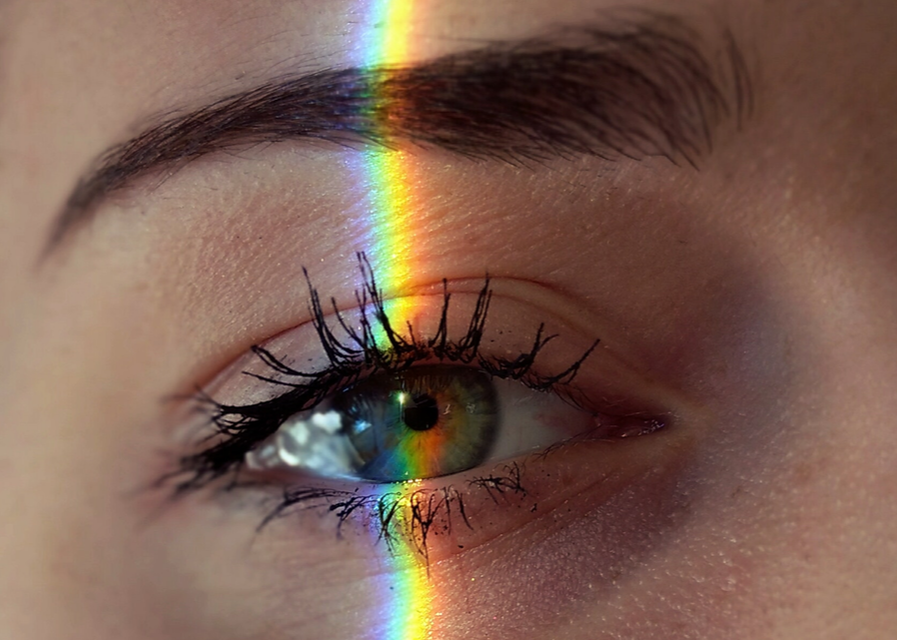
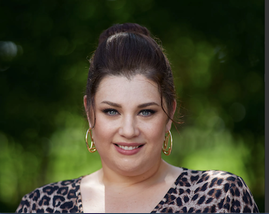

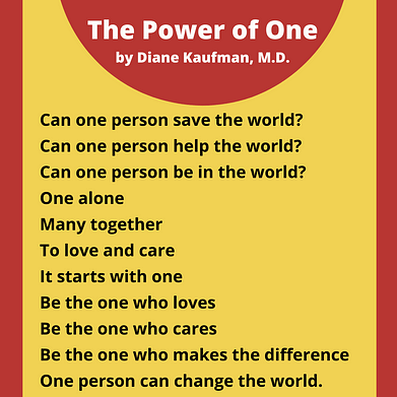
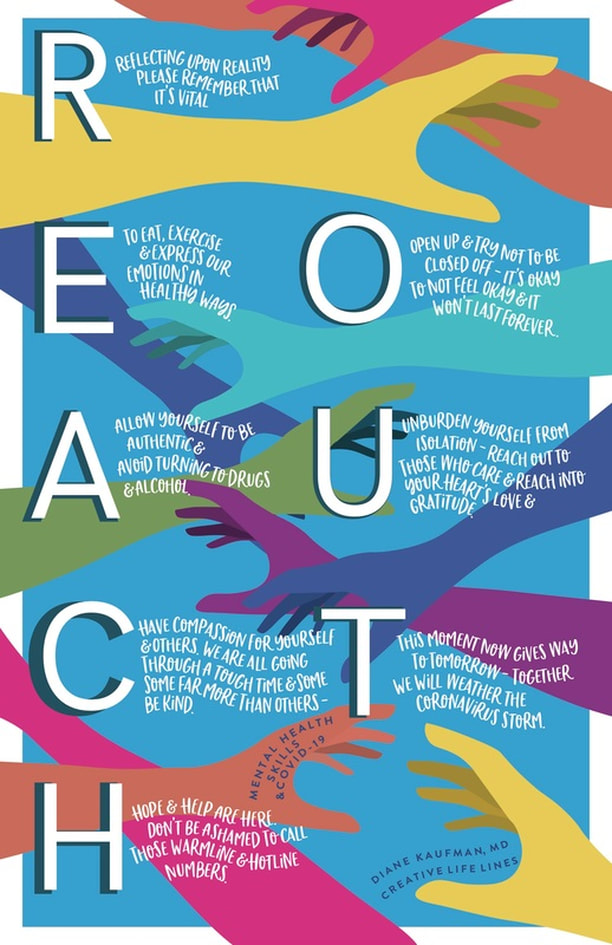

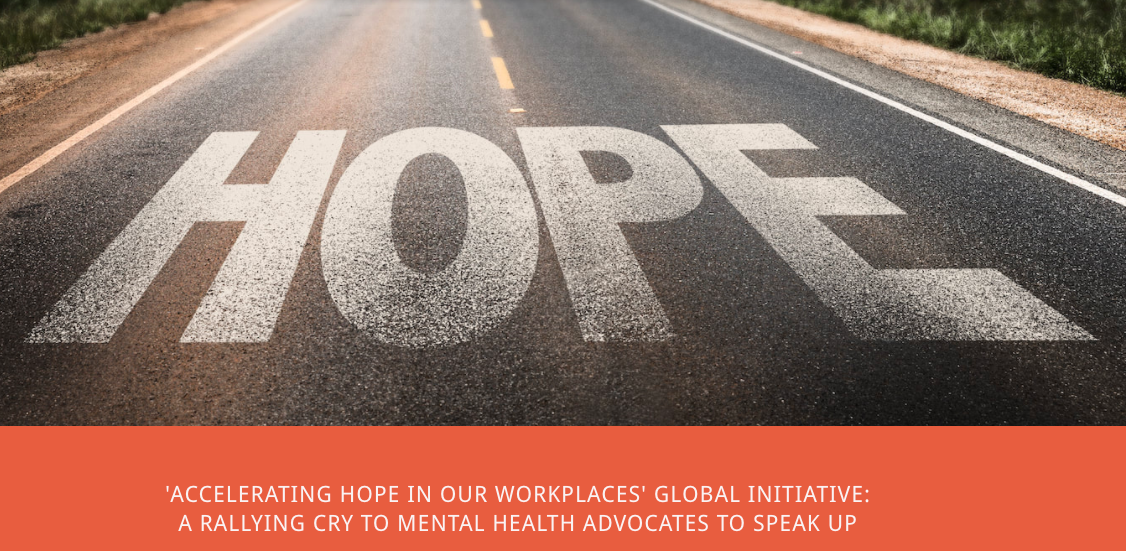

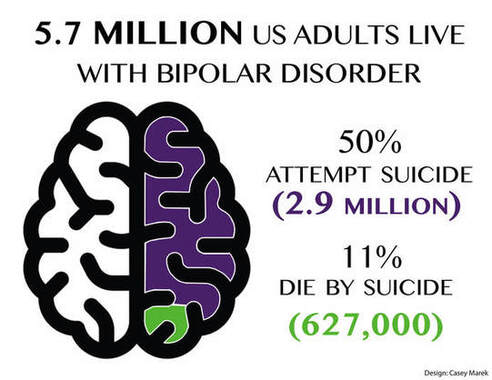
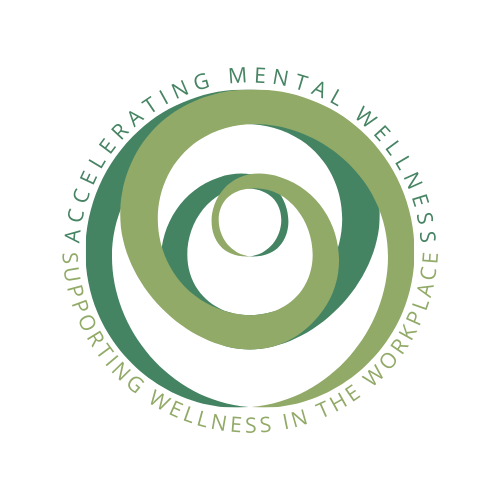


 RSS Feed
RSS Feed